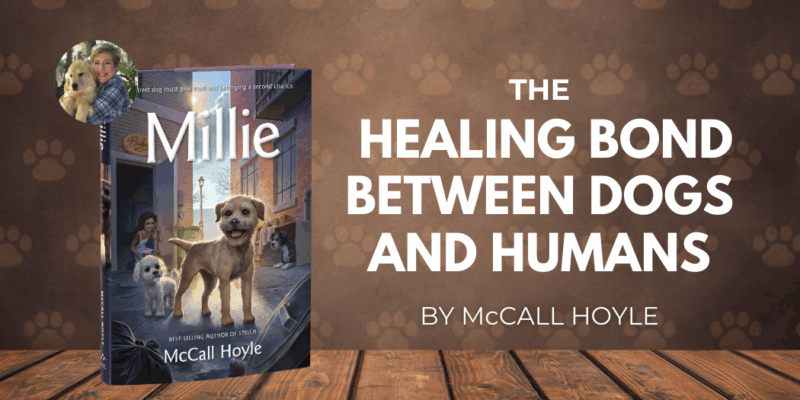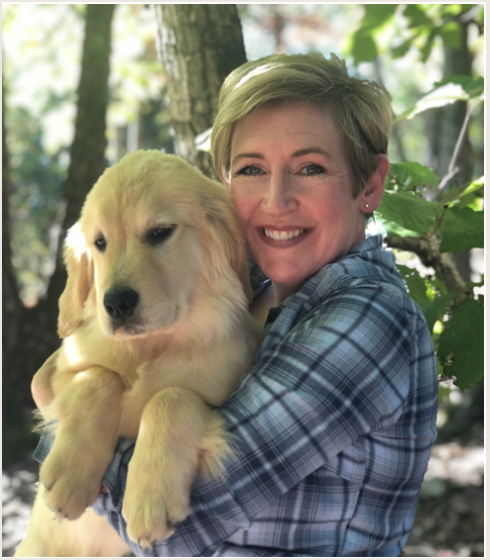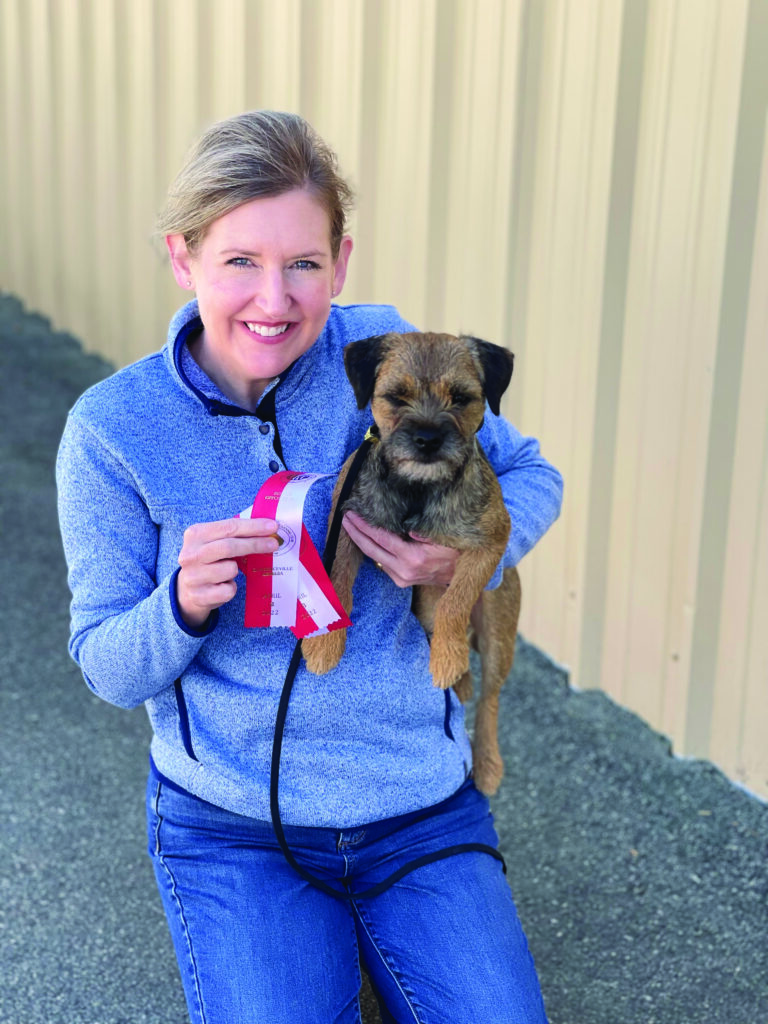
By McCall Hoyle, Author of Millie
Emily Dickinson once said, “Dogs are better than humans because they know but do not tell.” Of course, I agree. Some of my best friends have been dogs. I have never met a human, or any other creature for that matter, that encompasses such a perfect blend of childlike innocence and the capacity for such unconditional love.
As a sensitive kid who wore her emotions on her sleeve and struggled with body image issues, I felt that dogs, cats, and horses—but especially dogs—were always my safe haven, the place I could let my guard down and be completely myself.
Growing up in the South in the 1980s, I often felt like I had to smile and nod, say please and thank you, speak up—but not too much—make good grades, wear the right clothes, and on and on and on. The people pleaser in me felt I needed to earn the love and acceptance of others. The fear of mistakes paralyzed me. If I am being completely honest, it still does, although, thankfully, not to quite to the same extent it did when I was thirteen.

But Willie, our Dachshund, and Scruffy, our German shepherd mix, loved me despite my clumsy attempt at sports, my sloppy clothes, and my adolescent awkwardness. They just loved me. They never expected anything from me emotionally that I could not or did not want to give.
And as an educator, I have seen a wide variety of dogs do the same for an even wider variety of children. Jack the golden doodle in the social studies classroom next to mine has an uncanny knack for singling out the kid in the class who most needs his emotional support that day. Odie, the former library dog at my school, loved nothing better than being called on to chill in the regulation room with a boy with emotional and behavioral issues. And Apple, my overly energetic golden retriever, somehow knows when to stretch out on her side and relax for the well-being of the sixth-grade boy with attention issues who normally cannot sit still long enough to read. More than anything else, watching dogs interact with kids in these ways has convinced me of their special, dare I say magical, powers.
This dog magic carries over to fiction as well, which is why children’s literature is full of dogs and other animal points of view. I think dog magic, for lack of a better descriptor, is a big part of the reason I so enjoy writing from a dog’s point of view. Everything I write is emotionally driven and frequently includes difficult topics, such as grief and mental-health issues. Writing about these serious issues through the eyes, ears, and especially nose of a dog allows me to be completely honest and avoid the traps of my own preconceived notions and judgments. I believe reading books narrated from a dog’s point of view also allows kids the opportunity to practice empathy through the senses of a different species—a species Emily Dickinson says is in some ways superhuman. I think if we could all channel the seemingly innate empathy of dogs, the world would be a kinder, gentler place, and who wouldn’t want that?

McCall Hoyle is an award-winning author and teacher librarian. She writes heartfelt books for kids of all ages and believes one of the best ways to spread hope is by writing about the special bond between dogs and their humans. When McCall isn’t writing or teaching, you can find her training one of her four-legged friends for agility, obedience, or dock diving in the foothills of the North Georgia Mountains she calls home.
NEW! MILLIE: A heartwarming story is about a street dog named Millie and a young girl who are both dealing with abandonment issues and must give trust and belonging a second chance.